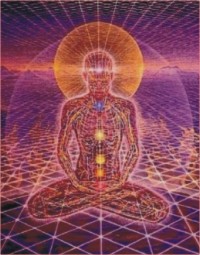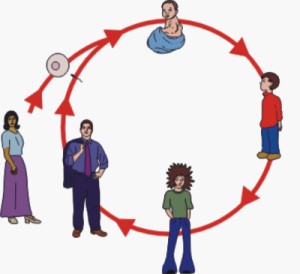Last & Least
“All the world's a stage,
and all the men and women merely players:
they have their exits and their entrances;
and one man in his time plays many parts...”
-- Shakespeare, As You Like It
The problem of life
Dr. Binoy Barman
THE problem of life is that one has to lead it. There is no escape. One cannot die even if one wishes. One cannot be relieved of the burden of life however intolerable it may appear. That is, the problem of life is the life itself, which we love and hate, which we own and disown, in our wake and dream, amid light and gloom, around centre and periphery. Life is a difficult riddle and all our time is spent to solve it in vain. We do not find any meaning to attach to it.
Life is meant for living. But why has one to lead a life? One has to do it because one cannot discard it. One has to pursue it because one is cosmologically designed to do so. The cosmic design is that the force of life will flow through time and space, through objects and ideas, through you and me, through generations. Humans and all other animals are the victims of cosmic plot. Humans are created to play the role of 'living being' and they have to play it. The end of the play is enacted through death.
 Is death then the solution to the problem of life? Death comes suddenly and announces the end of life. Humans feign realising the meaning of life sitting in the long shadow of twilight. Death is the most potent determinant of the meaning of life. Noted English poet Robert Browning thinks so: Is death then the solution to the problem of life? Death comes suddenly and announces the end of life. Humans feign realising the meaning of life sitting in the long shadow of twilight. Death is the most potent determinant of the meaning of life. Noted English poet Robert Browning thinks so:
You never know what life means till you die:
Even throughout life, 'tis death that makes life live,
Gives it whatever the significance.”
However, all may not have such poetic vision of life. To most of the people, I suppose, life is full of pain. The rose of life is full of thorns. The heart is pricked and injured by the harsh realities of life. Therefore the bloody view, rather than the rosy view, of life is much more visible. Soothing songs are lost. The sombre chants of Buddha are heard more acutely than anything else. Death appears as a demon rather than an angelic figure to the awe-struck eyes of humans. Death ultimately fails to provide any solution; rather it destroys whatever significance life attains in a short span given. It is not a solace but a burning.
Life is an imposed thing. A mass of material is brought into life through a biological process without any consent of the mass itself. The mass much later in its development comes to know that it has a life and he got it although he did not ask for it. In fact, during germination of life, the foetal lump was not conscious at all what was going on. When it becomes conscious of its existence, there is no way to go back to pre-existence. By the time it has been stuck in the existential quagmire.
It seems that life has a purpose but it is very much a collective one. As an individual, one may find he/she is swimming in the river of life belonging to some species. One must not die of one's own accord because that may harm the species interest of survival. If all individuals decide to commit suicide together, the species will be extinct. So one's life is not for one's own but for the community of humans. This is a great source of disappointment in individual life.
If I have to live for others, not for me, then what is the point in living? Being individual, why should I serve the collective purpose? Why shouldn't I commit suicide? Albert Camus ascertains the philosophical significance of the problem: “There is but one truly serious philosophical problem, and that is suicide. Judging whether life is or is not worth living amounts to answering the fundamental question of philosophy.” (The Myth of Sisyphus) It is a great challenge in front of philosophy to solve the puzzle of life. Is it worth living at all? Life piles on life and the individual is submerged in the great litter. When individualism is overwhelmed by collectivism, you and me cannot retain ourselves as distinct entities.
Life is protected with death. The fear of death prevents one from taking one's own life. Fear is the incantation, the utterance of which keeps death away. Fear is the amulet that gives life the spiritual shield. If there were no fear of death, there would be no way to resist immolation. Fear is the most basic instinct which even the tiniest creature feels. The more developed the organism the more intense the fear. Being at the pinnacle of all primates, humans have the most intense fear. They have been given fear without any direction to conquer it. So they cannot die.
But they have to die one day despite all their fear and unwillingness. It is the destiny of life. If one is born, one is to die. There is no exception. One may question: if one is provided with the blessing of life, then why should it end with the curse of death? The human tragedy is that birth is not in one's hand, nor one's death. One was born when one did not want it and one will die when one will not want it either. Both are unwanted and undesirable, but humans have to accept it. Nothing can be more regrettable than this. 
There are further predicaments for humans. On the one hand, they are not responsible for their life; on the other hand, they have full responsibility for whatever they do in life. They have to take the responsibility for life that they did not want and own. They will be rewarded and punished here and hereafter for their deeds, which were mostly determined by circumstances and chances. What a fun! Human ethics is based on shaky ground or no ground at all. Human system of justice is based on a tenet of sheer injustice.
Life has been awarded with the power to survive. It has the will to power, as observed by philosophers Schopenhauer and Nietzsche. The first molecules of life struggle to develop, denying suppression and death, though in the last event it will crumble. If that is the destination, then what was the necessity to give it the desire of living? It is the most fundamental enigma of life. There cannot be any answer to it. Or if there is any answer, it is not comprehensible to human intelligence.
A human being is born trapped in the world -- a Platonic cave. He/she ever wallows in mysterious gloom. From another perspective, life remains as a small dot in the big blank page. The dot dances on emptiness and in course of time perishes. For an individual, life is an unconnected entity. There is a big void before and after. One does not know where he/she has come from and where he/she will go. Life ultimately proves to be a joke. The jocular aspect of life was most seriously pronounced by Thomas Mann. “I shall continue to live, to eat, to sleep, to dabble in this and dabble in that; and gradually, as my apathy increases, I shall get used to being a wretched and ridiculous figure.” (The Joker)
(The writer is Assistant Professor and Head, Department of English, Daffodil International University.)
| 